 The UP Mindanao Growing and Developing Enterprises (UPGRADE) will sign a Memorandum of Understanding with the Department of Trade and Industry-Region 11 and Department of Information and Communications Technology-Mindanao Cluster 3 on Friday, 30 April 2021 at 2 PM, online via Zoom.
The UP Mindanao Growing and Developing Enterprises (UPGRADE) will sign a Memorandum of Understanding with the Department of Trade and Industry-Region 11 and Department of Information and Communications Technology-Mindanao Cluster 3 on Friday, 30 April 2021 at 2 PM, online via Zoom.
The MOU-signing will formalize the partnership of UP Mindanao through UPGRADE with DTI 11 and DICT Mindanao Cluster 3 in offering services and assistance to local startups in Davao Region.
Through partnerships with agencies from the government, academe, and private sector, UPGRADE is doing its best to make sure that it offers quality and effective incubation programs for its early-stage business startups.
The partnership will also align the programs and initiatives of the two agencies in empowering the community of innovators, inventors, researchers, and startup entrepreneurs to build their businesses.

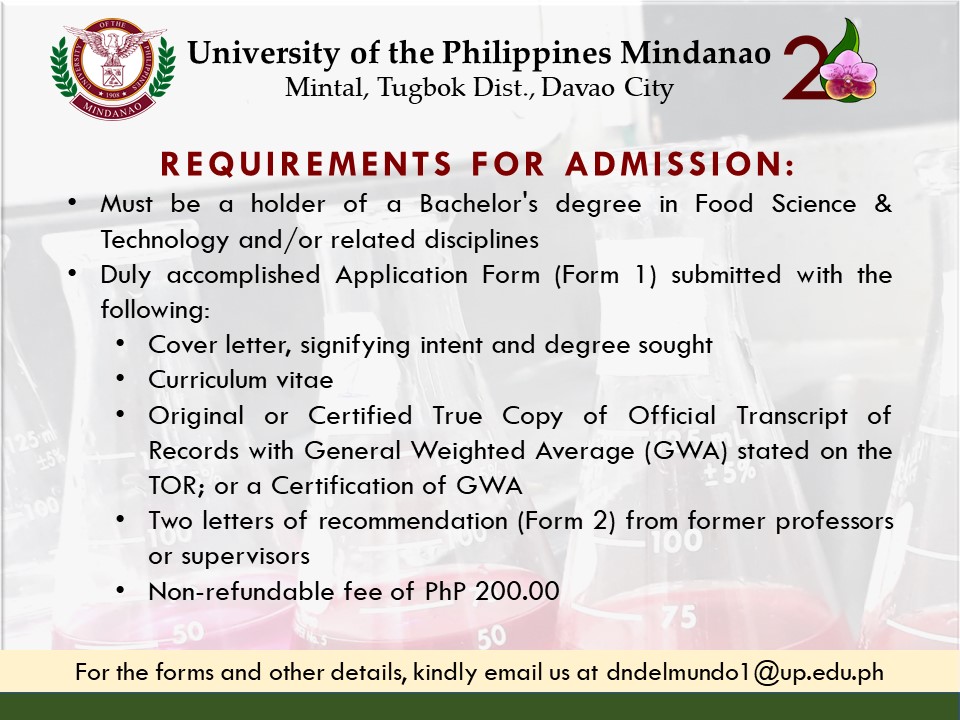

 The UP Mindanao Growing and Developing Enterprises (UPGRADE)
The UP Mindanao Growing and Developing Enterprises (UPGRADE) 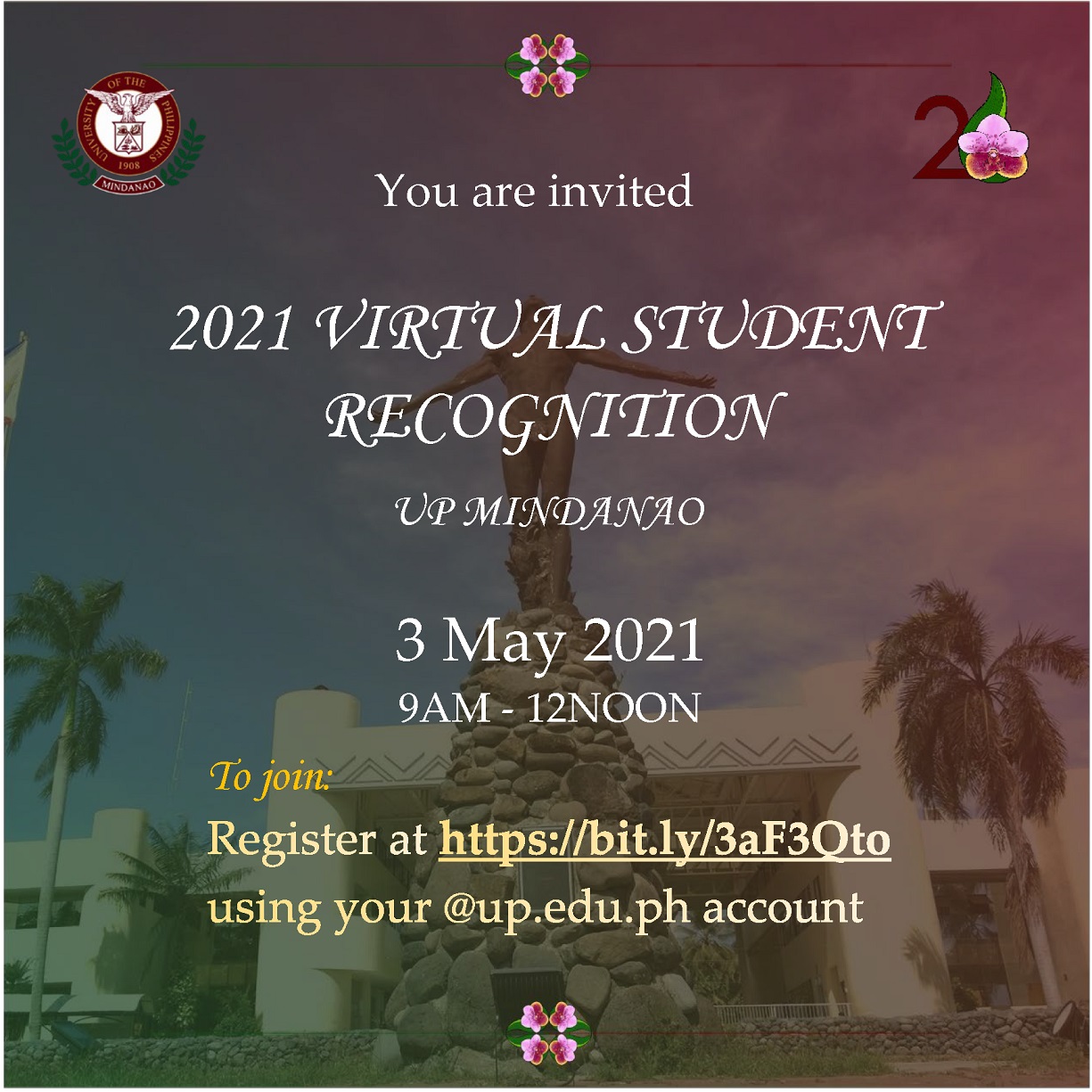
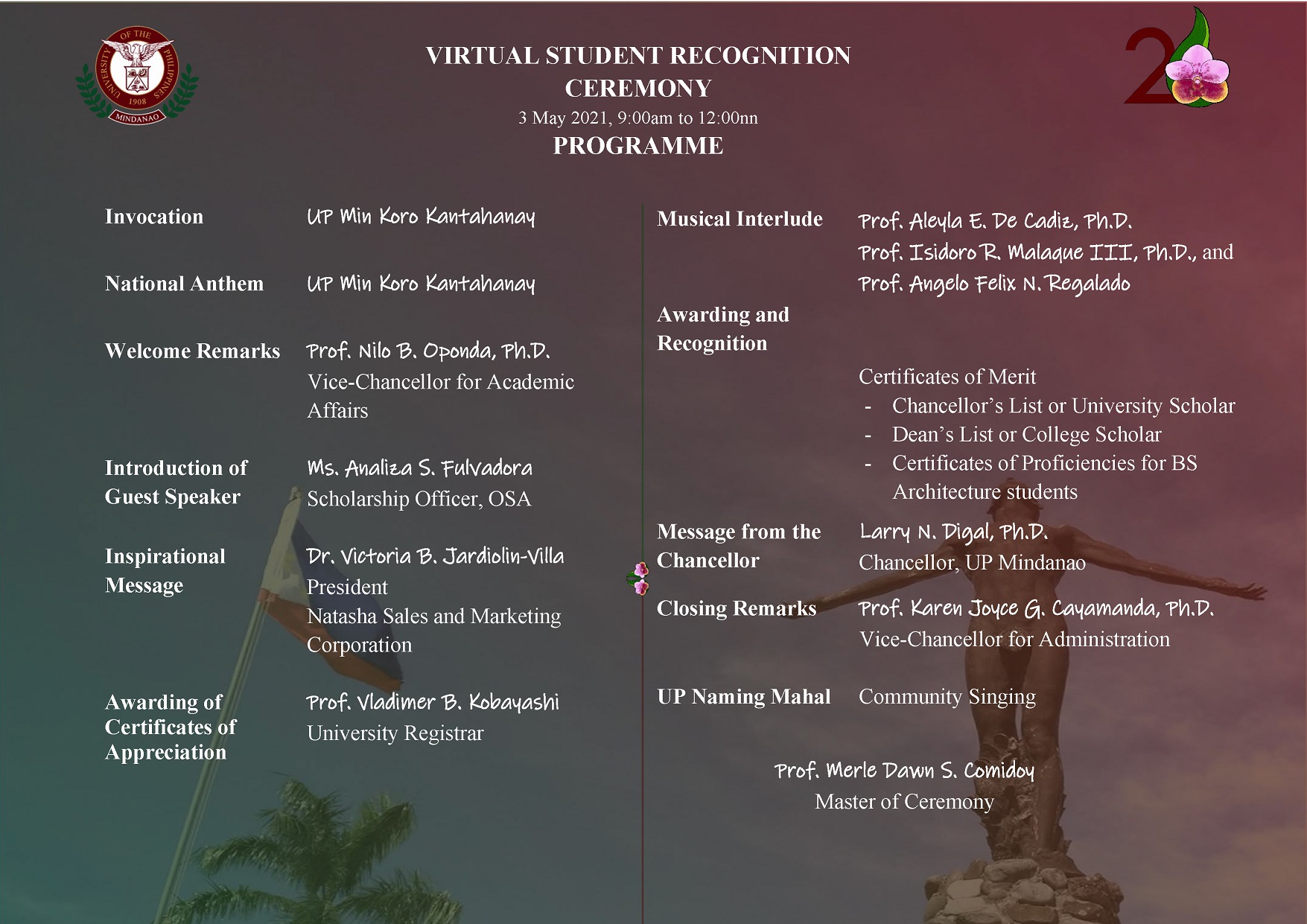
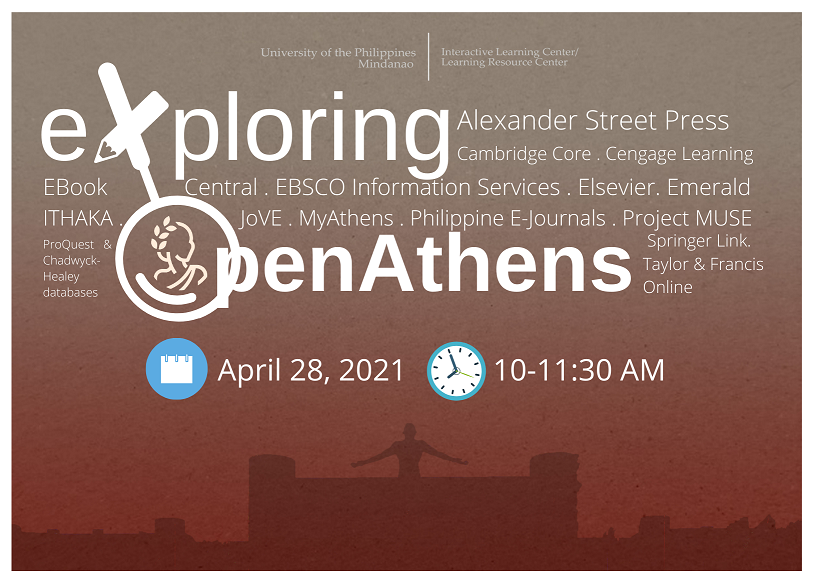 UP Mindanao constituents (faculty, students, staff) can now enjoy OpenAthens. In line with this, the Interactive Learning Center/ Learning Resource Center (ILC/LRC) will conduct an orientation on how to use the site and the available resources it contains.
UP Mindanao constituents (faculty, students, staff) can now enjoy OpenAthens. In line with this, the Interactive Learning Center/ Learning Resource Center (ILC/LRC) will conduct an orientation on how to use the site and the available resources it contains.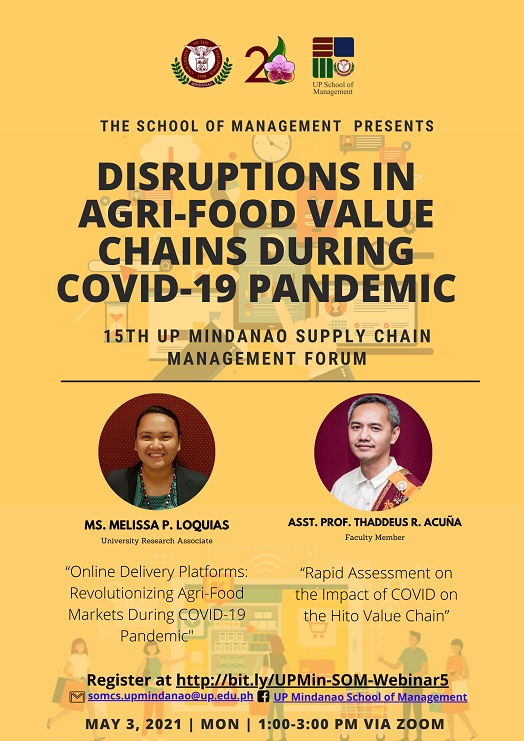 The School of Management, in celebration of the 26th Anniversary of the University of the Philippines Mindanao, invites you to a free Webinar:
The School of Management, in celebration of the 26th Anniversary of the University of the Philippines Mindanao, invites you to a free Webinar: